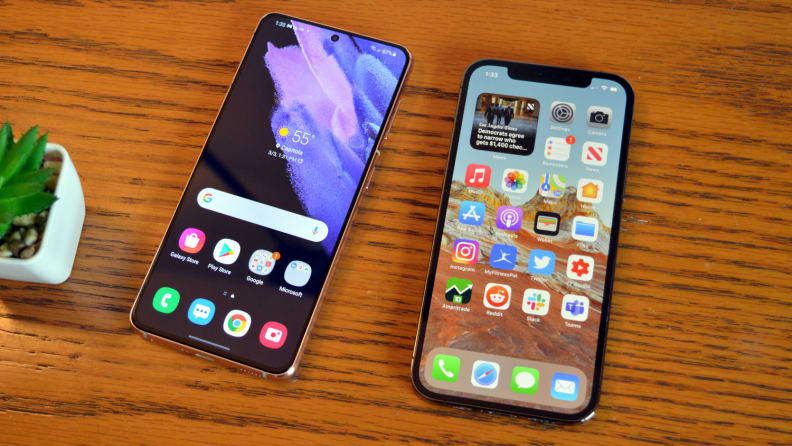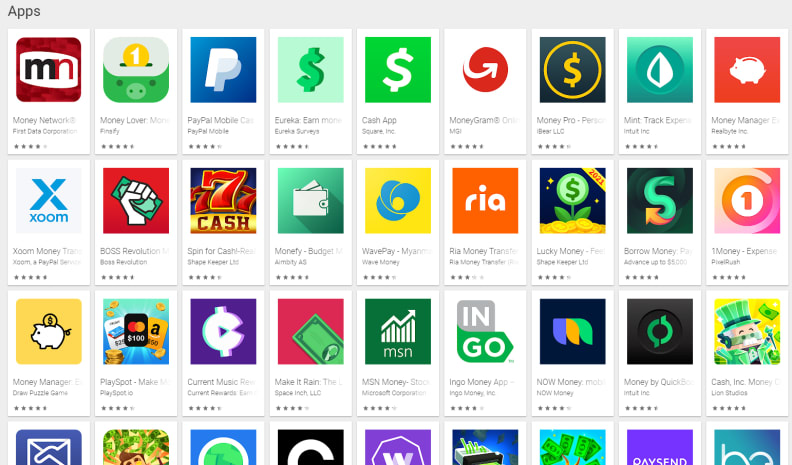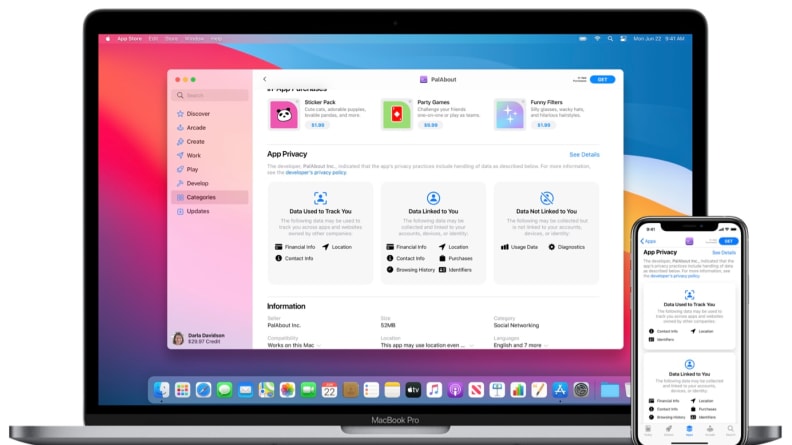 Credit:
Reviewed / Christian de Looper
Credit:
Reviewed / Christian de Looper
Products are chosen independently by our editors. Purchases made through our links may earn us a commission.
If you stick to using popular apps like Facebook, Apple Music, and Hulu, on your iPhone or Android you probably don't worry too much about getting conned on their app stores. But for those who like to tinker with new apps to fine-tune their workflow, or parents who let their kiddos play a game or two, navigating Apple’s and Google’s app stores can sometimes be a gamble thanks to the scam apps that infiltrate them.
Between high-cost subscriptions and overall bad actors, there's a lot to look out for when you're on the hunt for a new app. It can seem daunting, especially when your money is on the line, but with a bit of diligence and research, there’s a lot you can do to protect yourself from app scams.
What is a scam app?
Most scam apps follow the same formula: they offer some basic utility, like say a calendar app or an Apple Watch keyboard in exchange for a heavily overpriced subscription, often with weekly charges. Oftentimes, these apps offer a service that’s already provided for free on your device, such as a QR code reader.
It’s not just the App Store, either. These apps have made their way to the Google Play Store, too. Scammers can also place subscriptions into games, and although these sorts of apps are often easy to spot, some can be deceptive. Some scam apps even have nearly identical logos to the one they are trying to imitate.
Check the reviews
While App Store and Play Store reviews may not always be trustworthy, you may be able to gather a bit of trust from how the developer responds to their reviews. A lack of responses doesn't mean the developer isn't listening, but if you notice the developer has a lot of responses to their reviews, it's worth reading a few. (Apple now lets you leave user reviews on any of the apps in its App Store.)
You won't be able to gather much from a developer who responds with a lot of "Thanks!" to effusive reviews, but one who responds to complaints of bugs with requests for more information, or to let the user know the bug has been/will be fixed, might show that the developer actively monitors multiple sources for bug reports.
That might not tell you whether this app will be the right pick for you, but it's at least an assurance that the developer's invested in more than making a quick buck or two off of users.
Embrace the trial

Do a little bit of research before downloading an unfamiliar app, especially if it claims to manage your money.
If you're planning on spending money on an app, whether in the form of a single payment or an ongoing subscription, be sure the app delivers on its promises and fulfills all your needs first. Most apps will offer some sort of free trial period, ranging from a week to a month, which should give you plenty of time to figure out if the app fulfills its promises.
In that time, try fiddling with the app's settings, testing out different setups, and checking out sources like YouTube or forums for how other people might be utilizing the app in useful ways.
If you're testing out an app that could play a key role in your daily life, such as a task manager or note taking app, try replacing your old app with the one you're testing out to get the best idea of how well it'll fill the gap. This way, you'll be able to see if you'll actually miss any features from the old app, or if you'd be spending more money for a mostly similar experience.
Usually, you'll have to commit to some form of payment once the trial expires. If you want to avoid surprise charges from apps you only tried for a few hours, make sure you set up some sort of reminder for any app you try out, whether that's in your todo list app of choice, a new calendar event, or a sticky note on your monitor. That way, when the time comes, you can cancel before any recurring charges pop up.
Of course, if something feels off about the app before you download it or input your banking information, go with your gut and avoid it completely.
What are people saying?
It never hurts to get a few extra opinions. If you're still unsure about the quality of the app, whether that's because it hasn't been updated recently or you're just not sure it's worth the high price tag, you can always do a quick search on social media.
For instance, you could run a search on Reddit for the app's name, so long as it isn't something generic like "Reminders" or "Bike App." Often, you'll be able to find at least some discussion of apps with a decent number of downloads, and you might spot one or two red flags this way. Subreddits such as /r/iPhone, /r/Apple, and /r/Shortcuts all regularly discuss apps that users are trying out, and /r/AppHookup often posts discounts on apps if you're willing to bargain hunt a bit.
You can also try a good ol’ Goggle search for the app developer and see if anything pops up. If you have a hard time finding any information on the company, think twice before downloading that app.
Unfortunately, bad faith actors and scam apps aren't likely to go away any time soon. There's no sure way to avoid them entirely, but being diligent about what apps you download and which ones you're willing to spend money on, can go a long way.
Read the label

Apple's privacy labels can give you an overview of the information apps request before you download them.
When you’re downloading a new app, there are some things you can look for in the app’s description, too. Last year, Apple introduced privacy labels to the App Store, which allows developers to communicate directly to users what data the app collects before they even download the app.
These labels will tell you if the app is collecting information such as your physical or email address, health, and fitness information, browsing history, and pretty much anything else that might get logged on your device. If you see a sleep tracking app that needs access to your health data, that probably checks out, but you might want to look into a calculator app that requests access to your location.
If you can’t find a good reason for the app to be storing your email address or your contacts, you might want to peek around for a less nosey app. Sometimes, though, those apps do utilize your information for specific features, like a calendar app checking your location to drop it into your next meeting, or a notes app accessing your microphone to do dictation. Ultimately, it’ll be up to your discretion, but be wary of any apps that gratuitously ask for more data than they need.
What should you do if you download a scam app?
If you’ve downloaded an app that you later realize is a scam, the first thing you should do is cancel the subscription. If you simply delete the app, you should get a prompt to cancel the subscription, but just to be sure, cancel it before you delete the app so you don’t forget.
You can also request a refund, and though they’re usually pretty lenient, you may not get a refund every time. You’ll have to choose an explanation, and there isn’t a direct “This app is a scam” option, though you can select “Other” and write that out, or just say the app doesn’t work as promised.
Once that’s done, you should make sure the app didn’t nab any sensitive data, like payment information, like if it prompted you to subscribe outside the app itself. If you did hand over your credit card information, call your bank.
The best way to avoid scam apps is to diligently monitor the permissions your apps request, and making sure nothing slips through the cracks along the way. To do that, simply double-check the apps you’re looking at before downloading them, and make sure to test them thoroughly before committing to any sort of ongoing payment.


